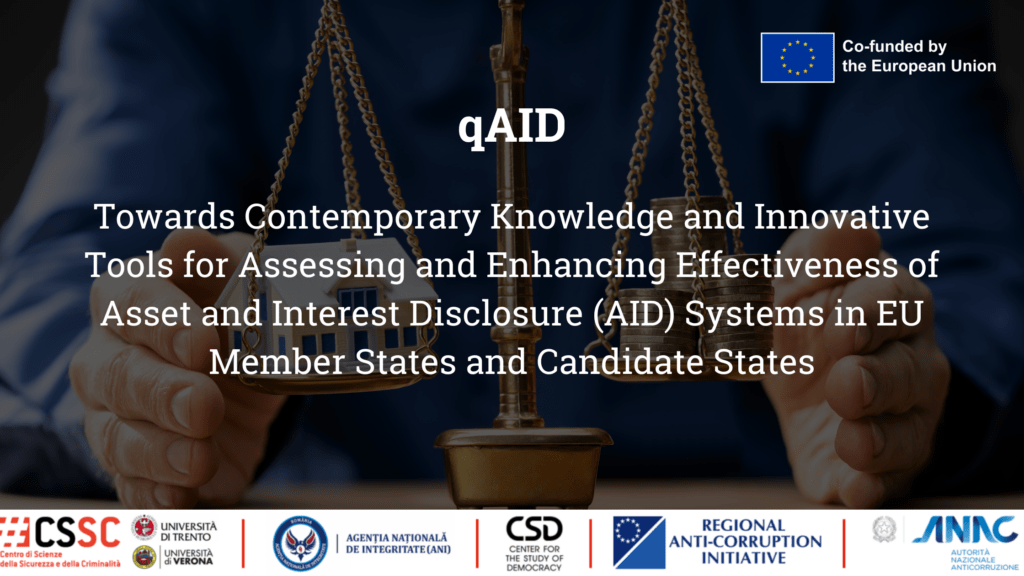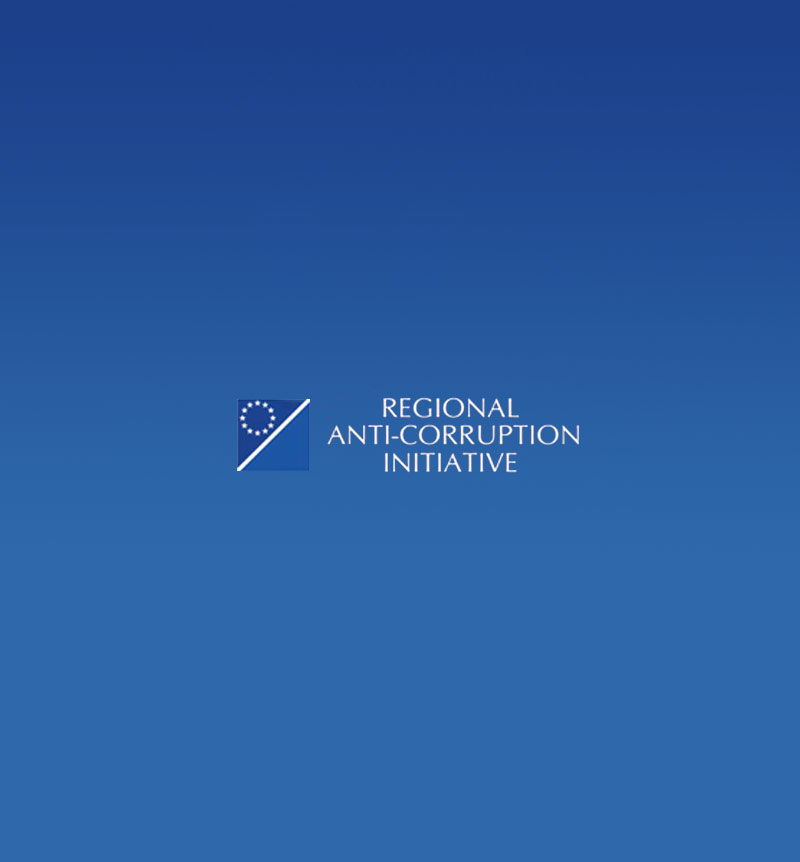
Asset and Interest Disclosure (AID) systems are increasingly becoming a tool in European Union member countries to promote transparency and overall trust in public officials and public administration. At the same time, for the candidate countries to join the Union, the containment of corruption is a central precondition in the accession process.
The general objective of the Towards Contemporary Knowledge and Innovative Tools for Assessing and Enhancing Effectiveness of Asset and Interest Disclosure Systems in EU Member States and Candidate States (qAID) project is to provide EU Member States and candidate countries for accession to the Union with innovative knowledge and tools to evaluate and improve the impact of national AID systems. Specifically, this will happen by: (i) identifying best practices in terms of effective systems and processes (including automated and digital); (ii) developing a standardized risk analysis framework to improve the verification of claims, together with a roadmap for digital and automated analyses; (iii) developing a toolkit to measure the impact of asset and interest disclosure systems; (iv) disseminating the knowledge and tools developed in the EU Member States and in those candidate for entry into the Union.
The project (co-financed by the European Commission under the ISF programme) is coordinated by the Centre for Security and Crime Sciences of the University of Trento and the University of Verona and carried out in collaboration with the National Anti-Corruption Authority (ANAC, Italy), the Regional Anti-Corruption Initiative (RAI) Secretariat, the Agency Națională de Integritate (Romania’s anti-corruption agency), and the Center for the Study of Democracy (research center based in Bulgaria).
Funded by the European Union. Views and opinions expressed are however those of the author(s) only and do not necessarily reflect those of the European Union or the European Commission (Directorate General for Migration and Home Affairs). Neither the European Union nor the granting authority can be held responsible for them.


